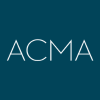Recent Blogs

Pharma Sales
Navigating Pharma Sales Challenges: Tips to Boost Your Sales Performance (Use of AI and So...

Pharma Sales
- Mar 17, 2025
- 6 min read

Pharma Sales
Pharmacodynamics and Pharmacokinetics: The Science Behind Drug Action (Understanding the d...

Pharma Sales
- Jan 29, 2025
- 7 min read

Pharma Sales
Biosimilars: A Promising Solution for Affordable Access to Biologic Therapies

Pharma Sales
- Jan 29, 2025
- 7 min read

Pharma Sales
Mastering Pharmacology: A Game-Changer for Pharma Sales Reps Communicating with HCPs

Pharma Sales
- Jan 8, 2025
- 9 min read

Career Development
Choosing the Right Prospects: A Sales Rep’s Guide

Pharma Sales
- Oct 9, 2024
- 7 min read

Career Development
Overcoming Sales Objections Part 1: Pharma Sales Challenges

Pharma Sales
- Oct 9, 2024
- 6 min read

Pharma Sales
The Role of Certified Pharmaceutical Representatives in the Shifting Sales Landscape

Hailey Gascoigne, PharmD, Patient ...
- Jun 24, 2024
- 7 min read

Career Development
Mastering the Path to Pharma Sales Success: Your Ultimate Guide

Pharma Sales
- Feb 29, 2024
- 5 min read

Pharma Sales
Pandemic Innovators: Pharma Marketing Strategies that Reinvent the In-Person Conversation

Pharma Sales
- Dec 21, 2021
- 5 min read
